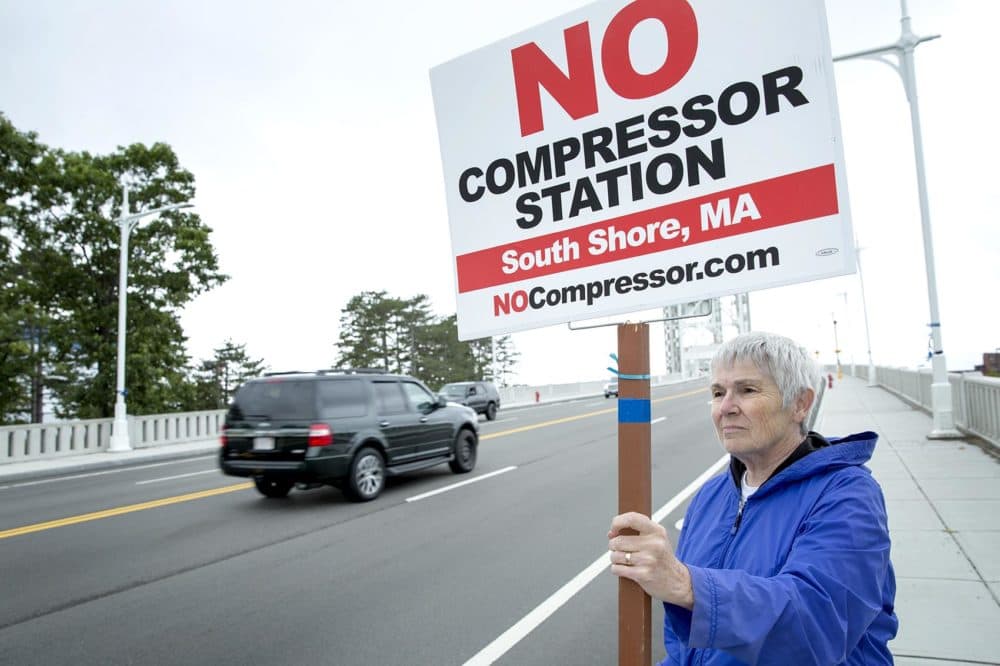Advertisement
Energy Company Behind Weymouth Compressor Says New Air Quality Data Shouldn't Affect Permits

Attorneys for Enbridge, an energy company looking to build a natural gas compressor station in Weymouth, rebutted arguments that new air-quality data should force reconsideration of the permitting process, writing in new filings that opponents of the facility "failed to show a meaningful difference" in the additional materials.
Residents who challenged the validity of the permit alongside the communities of Weymouth, Braintree, Quincy and Hingham wrote last week that the 759 pages of test results suddenly introduced before the final day of the appeal hearing show the presence of at least one carcinogen above the state's allowable ambient limit. As a result, they said, the state should vacate the air quality permit or at least allow for the health impact assessment that greenlit the process to be redone.
Enbridge's response pushed back, pointing to a position hearing officer Jane Rothchild took earlier in the process to rule any findings of the assessment outside the appeal process. Moving forward, the company's attorneys said, Rothchild should honor that stance and ensure a ruling is issued by June 28 as required in a court order.
"The [health impact assessment] was considered by [the Department of Environmental Protection] when it issued the plan approval, and was appropriately included in the administrative record of this appeal, but its validity and conclusions are not at issue in this proceeding," attorneys wrote.
DEP cited the health impact statement in January as part of its approval of the air quality permit.
DEP attorneys announced the night before the final day of the appeal hearing that the department had earlier that week received updated air-quality data from the site of the proposed station. The state later acknowledged the new data tested for more toxins than the original information used during the permitting process.
In response, Enbridge also asked Christopher Long, a scientist at environmental consulting firm Gradient who had previously testified on behalf of the company, to review the new test results. Long, who submitted his own testimony Tuesday as well, said the data show no toxins above required limits save for 1,3-butadiene, which was present in only four of 42 samples and had been previously known to parties in the appeal.
Gov. Charlie Baker ordered the health impact assessment amid concerns over the station's effects on the densely populated community in the Fore River Basin, and its conclusions that the facility would not contribute to major health concerns helped pave the way for the air-quality permit.
However, the Metropolitan Area Planning Council, which was contracted to perform the assessment, expressed doubts about the process after the late data release. Last week, the group wrote that the state should "reconsider" the permit and that the conclusions of the assessment "cannot be assumed to hold if new information comes forth."
Rothchild previously threatened sanctions against the DEP last week for waiting three days to notify parties in the case that the department had received the updated batch of data, a process that department attorneys later said was "standard practice."
Enbridge was the final party in the case to file new testimony in the wake of the new data, and late Tuesday afternoon, Rothchild's office informed parties she intends to make a decision on the status of the case and issue an order by Thursday.